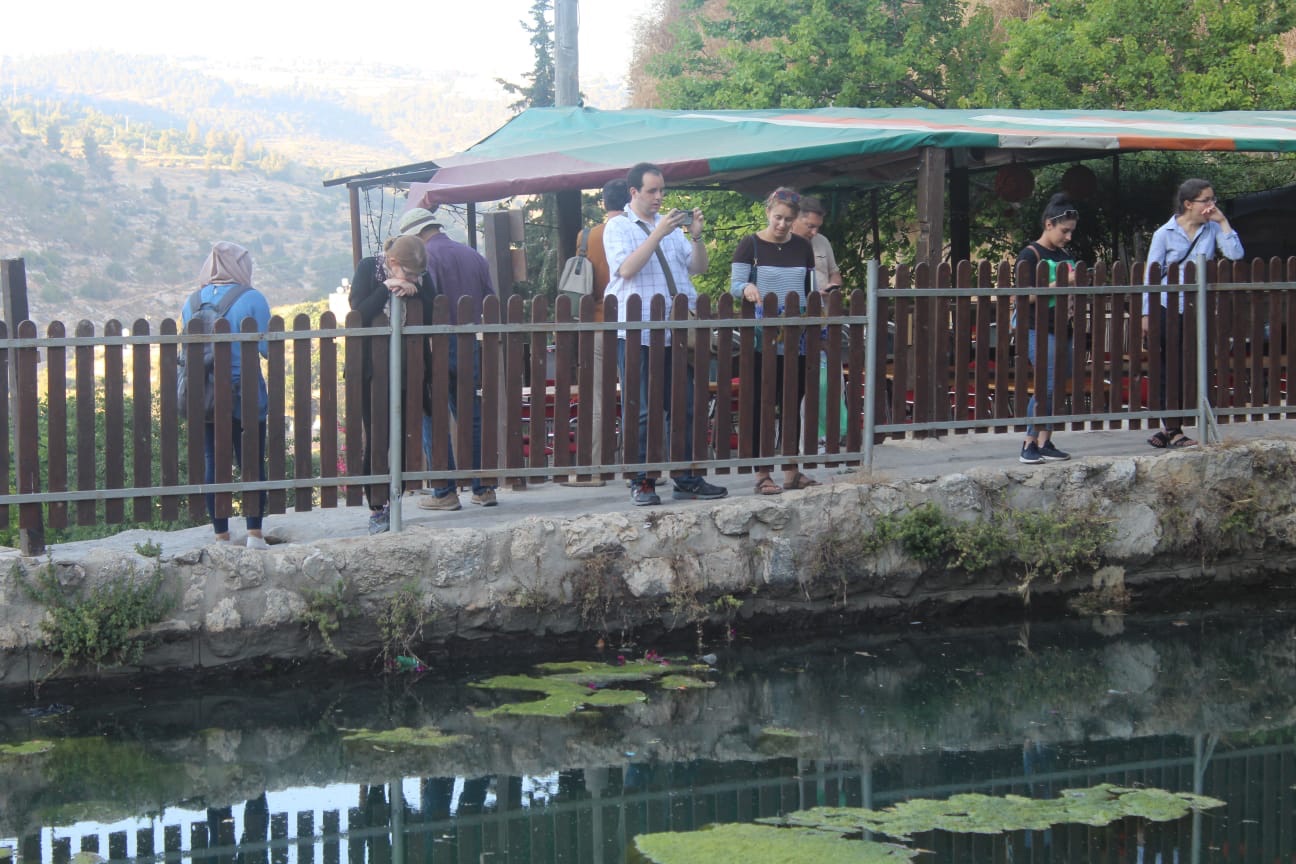Water
Lack of sustainable and accessible drinking water continues to plague Palestinian citizens, complicates their already arduous lives, and presents a critical block in economic development. As our tour guide Said discussed on our second day of the trip, access to water was one of the main negotiation points that PLO Chairman Yasser Arafat advocated for during the 2000 Camp David negotiations.
Walking through the excavations above Silwan on the third day of the tour, we saw how, through archeological digs, the Israeli government uses the presence of ancient aqueducts to build the narrative of their claim to water rights as a matter of precedence. But these claims ignore the contemporary Umayyad Caliphate ruins that have been unearthed adjacent to the aqueducts.
During our tour of the Jordan Valley, we also learned that settlement planning prioritizes development on the locations of springs to exert further control over the land’s groundwater resources.
In a semi-arid environment with high evaporation rates, the entire population of the occupied territories relies on groundwater. Mekorot[i] is a private Israeli company that provides the majority of water distribution to both Palestinians and Israeli settlers. On average, settlers consume over four times the amount of water per capita compared to Palestinians. Yet Palestinians experience discrimination in water rights, including guerilla-style poisoning of farmers’ wells and denial of groundwater pumping permits.
While Israel claims that groundwater is public, which limits access to the groundwater below a landowner’s property, many kubutzes and settlements receive exemptions and are allowed to drill for groundwater. Specifically, in the Israeli-occupied Syrian Golan, as we learned from Karami at the al-Marsad Human Rights Centre, farmers are required to request groundwater well drilling permits as a part of a co-op, which purposefully prefers giving permits to Israeli settlements and prevents Syrian farmers from expanding agricultural productivity on their land.
Israeli water law primarily relies on riparian rights, which states that Israel can claim the right to extract water from any basin that exclusively lies within the 1948 borders. The 10 million cubic meters of water that the occupation extracts from the Golan every year is in direct violation of riparian law as well as international law.[i]
Under riparian rights, Lake Tiberias is the only freshwater lake that Israel can extract water from, but its current pumping rate (560 million cubic meters per year) can only account for a third of total Israeli consumption. The rest of the water consumption comes primarily from either private wells or Mekorot wells adjacent to the Jordan River.[ii]
A few days ago, we stopped in front of the Qusara Mine in the West Bank to discuss the annexation of Palestinian rock and sand mines for Israeli development. Located in a particularly dry area of the Jordan Valley, the dusty road leading to the mine had sprinkler heads lining the road, apparently to dampen the road and decrease dust as trucks drive through. As we stood by the entrance, discussing the lack of labor rights for Palestinian workers in such mines, the mining company turned on the sprinklers, spraying us with water and disrupting our discussion.
In this moment, a simple and often comical moment that I’ve often experienced in the United States turned into an aggressive act that is layered in symbolism. Here is an Israeli-occupied mine, unabashedly weaponizing occupied groundwater against a small group of activists.
The mine also wastes precious freshwater on dampening their driveway while daily per capita water consumption for Palestinians in the West Bank is almost 25% less than the World Health Organization recommended minimum in order to maintain a healthy standard of living.[ii]
NOTES:
[i] Kathy Keary, Water is Life: A Consideration of the Legality and Consequences of Israeli Exploitation of the Water Resources of the Occupied Syrian Golan.

